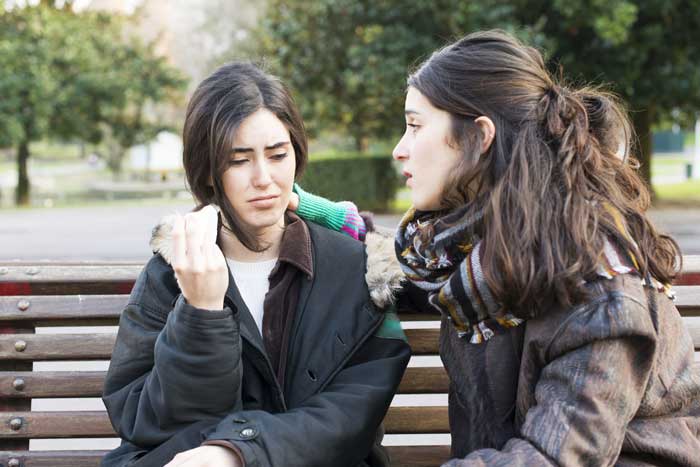Bullying and empathy

What is bullying? When someone uses force over another person in the form of physical force or by using words through teasing or humiliating someone; it’s called bullying. The intent is to make fun of the other person, make them scared, make them lesser than you, and to give the message that you don’t belong. It is generally done to gain power over the other person, and make them feel lesser.
Giving someone tags or names qualifies as bullying — “skinny”, “fatso”, “you have a big nose”, “you are so dark”, “you are ugly”.
Bullying can be physical by hitting, kicking, slapping. It can be verbal by teasing the person for being different, making fun of their body parts, their habits or their mannerisms in a way that the other person finds hurtful. It also can be emotional and is meant to scare the other person, and make them feel left out or that they don’t belong to your friend’s group. Rumours also lead to emotional bullying. You, or a friend you know, may also have experienced bullying on the internet or through your phone. This may have been in the form of hateful messages, or messages making fun of someone, or sending visual images, videos to make fun of a person. This is called cyber bullying.
So what does it feel like when you are bullied? A lot of youngsters have answered this question. They have shared feeling scared, lonely, really sad and low. They feel left out, do not have friends, start staying alone, feel extremely lonely and cry very often as they feel helpless.
How can you stop this or help this? You can seek help from your parents or a trusted adult. You could tell them about it. The idea of telling an adult is not to complain and get the bully into trouble. Punishment can only stop them temporarily from bullying. Instead they need to be dealt with sensitivity and care, too. You could also help by talking to the person who bullies when they are calm and in a good mood. However, you need to be open to the fact that this may work or not work. You can also speak to the person who is being bullied, and just be present for them.
Often youngsters who bully others face bullying themselves, experience being a part of conflicts at home, or feel lonely because they do not have friends, or that they are afraid that they may be picked on by others. In order to defend themselves, or feel a sense of power and gain social popularity, they pick on others. They usually pick on those who are unpopular in order to gain the approval of the others.
Read the full article by subscribing to the print magazine or the digital edition.
Parul Agarwal is a psychologist who is passionately practising Compassionate Communication and enjoys holding space for people. She works with teenagers, parents and adults. She enjoys travelling, meeting new people and understanding their practices and beliefs, and sharing them through her writing. You can contact her on parul.agr6@gmail.com.
